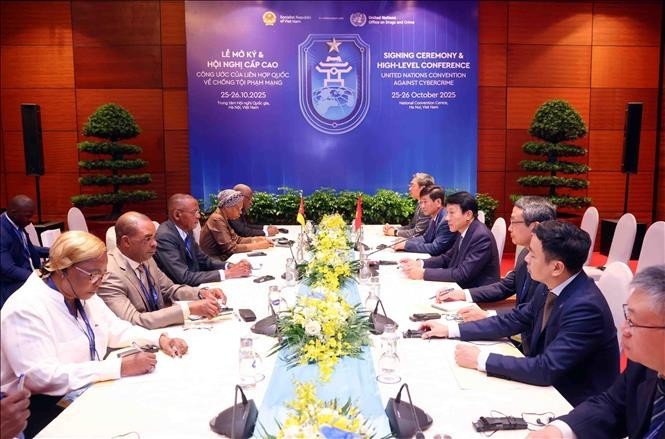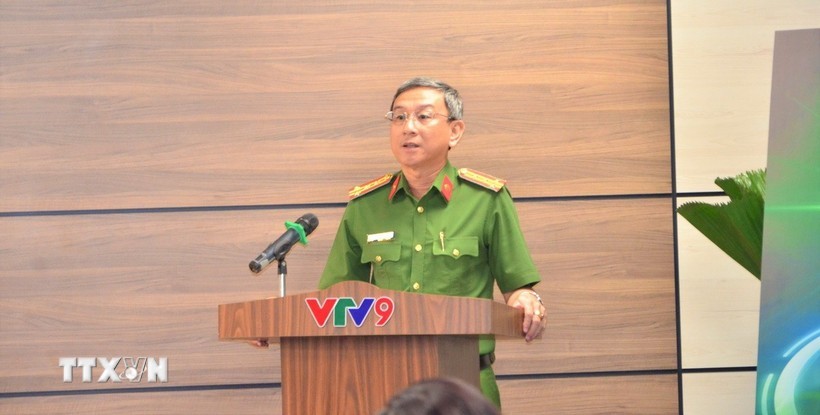Hanoi Convention: Testament to Vietnam’s Growing International Standing
| Hanoi Convention: Identifying and Combating High-Tech Fraud Crimes | |
| Vietnam News Today (Oct. 26): Hanoi Convention: Vietnam’s key role in multilateral cooperation |
Testament to Vietnam’s Growing International Standing
In an interview with the Vietnam News Agency, Pauline Tamesis, UN Resident Coordinator in Vietnam, described the Signing Ceremony of the United Nations Convention against Cybercrime in Hanoi (the Hanoi Convention) as a historic event. For the first time, a United Nations convention will bear the name of a Vietnamese city—a vivid testament to Vietnam’s growing stature on the international stage.
According to Tamesis, this is the first global legal instrument on cybercrime adopted under the UN framework in over two decades. It represents a success of multilateralism in today’s challenging world and responds to the urgent need to address the explosion of cybercrimes—transnational offenses that transcend borders, outpace legislation, and threaten the very foundations of digital societies.
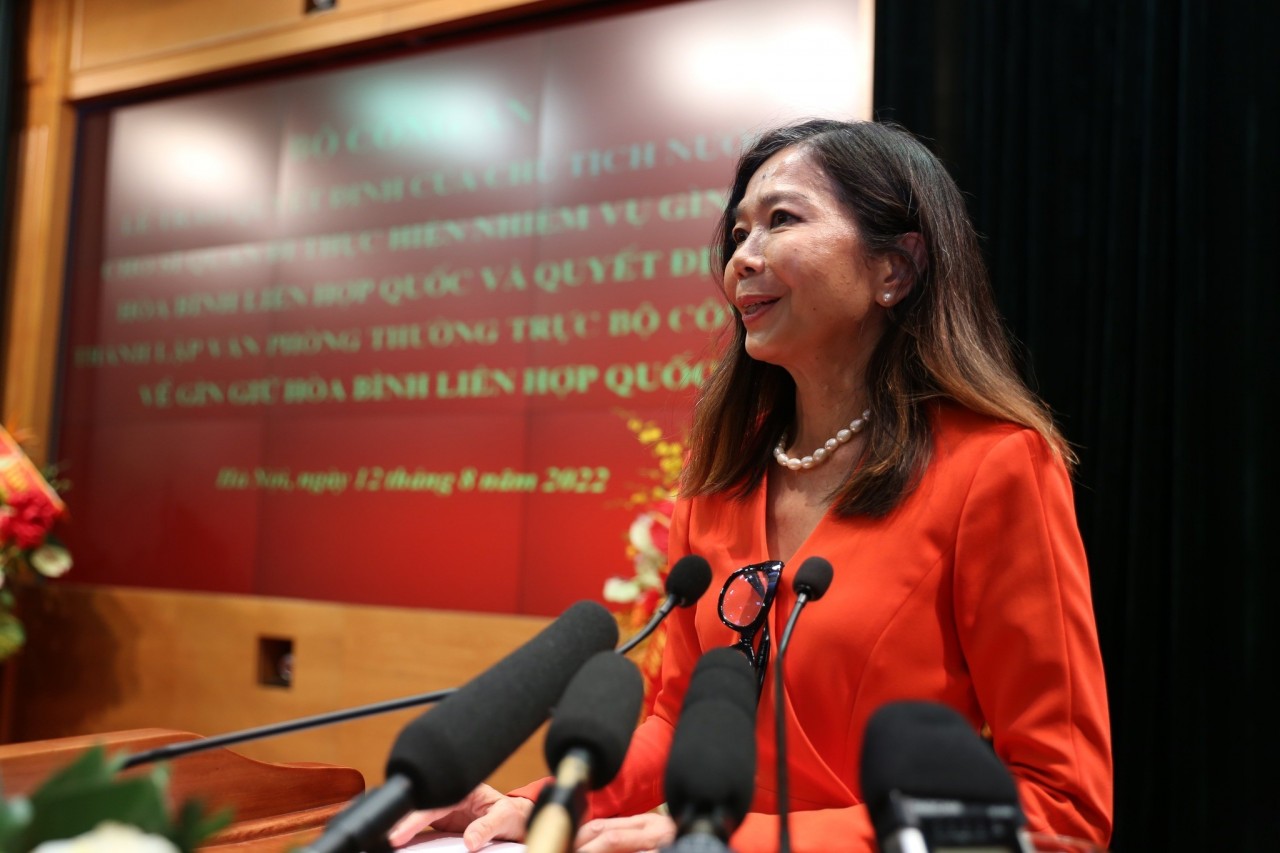 |
| Pauline Tamesis, UN Resident Coordinator in Vietnam. (Photo: United Nations Viet Nam) |
“This Convention is not merely a legal document but also a blueprint for international cooperation, equipping member states with powerful tools to prevent, investigate, and prosecute cybercrimes,” she said.
She emphasized that the Convention marks the beginning of a new era of collaboration among governments, international organizations, businesses, and civil society, all united by the goal of ensuring cybersecurity, safeguarding data, and upholding justice in the digital age.
The Convention, she noted, is closely linked with the Global Digital Compact and the Pact for the Future—two key initiatives aimed at promoting digital safety, human rights, and inclusivity in cyberspace. These instruments demonstrate the global community’s determination to build an open, secure, and sustainable digital future for all.
For Vietnam, Pauline Tamesis remarked, hosting this signing ceremony represents a remarkable milestone in its 47-year partnership with the United Nations.
“It is a proud moment, underscoring Vietnam’s strong commitment to multilateral diplomacy and its increasingly significant role in shaping the future of global governance,” she affirmed.
According to the UN Resident Coordinator, Vietnam’s role as host of this milestone event is clear evidence of the country’s leadership, strategic vision, and steadfast commitment to multilateralism—with the United Nations at its core. The event sends a powerful message to the world that Vietnam is not only a responsible member of the international community but also an emerging leader in addressing the most pressing challenges of our time.
The United Nations expects all future state parties to the Convention, including Vietnam, to fully implement its provisions in harmony with other international frameworks such as the Global Digital Compact. At the same time, it hopes Vietnam will continue to demonstrate leadership, proactively share its experience, and foster innovation in the global fight against cybercrime.
“In an increasingly complex digital world, the United Nations trusts that Vietnam will continue to set an example - advancing cross-border cooperation and upholding the principles of justice, security, and human dignity for all,” Tamesis stated.
Vietnam Fully Deserves the Honor of Hosting
In an interview with the Vietnam News Agency, Artur Liukmanov, Director of the Department of International Information Security at the Ministry of Foreign Affairs of the Russian Federation and Special Representative of the President of Russia for International Cooperation in Information Security, affirmed that Vietnam fully deserves the honor of hosting the first United Nations convention on countering cybercrime in 20 years. He also expressed Russia’s pride in contributing to the international community’s joint efforts in this important field.
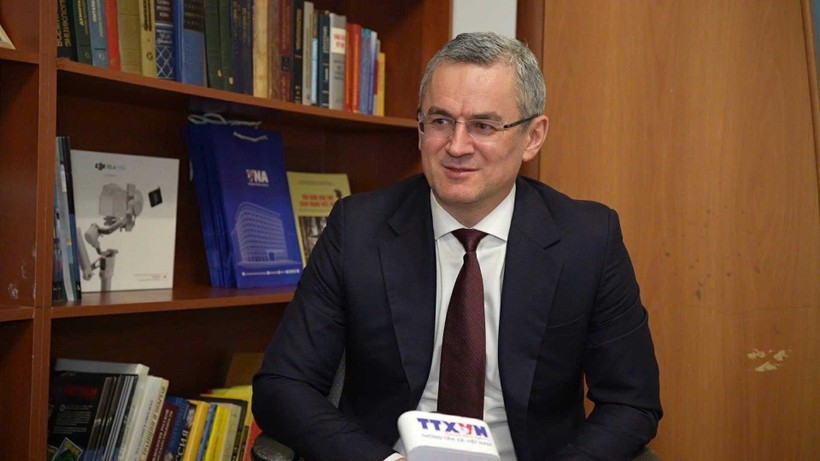 |
| Artur Liukmanov, Director of the Department of International Information Security at the Ministry of Foreign Affairs of the Russian Federation and Special Representative of the President of Russia for International Cooperation in Information Security. (Photo: VNA) |
Since the initiation of the Hanoi Convention, Russia has actively supported Vietnam during the UN General Assembly plenary session in December 2024 and worked closely with Vietnamese agencies to prepare for the signing ceremony. Both countries have co-organized several activities, including large-scale cybersecurity training programs, capacity-building workshops, and technical support initiatives in the fight against cybercrime.
According to Liukmanov, Russia and Vietnam share a common vision that UN member states must establish legally binding agreements to ensure the security and safety of their citizens. Regarding specific cooperation in combating cybercrime, he noted that the two countries regularly exchange experiences and coordinate through multiple channels—such as the UN Security Council, their respective Ministries of Internal Affairs, as well as joint conferences, workshops, and training programs for cybersecurity experts. A notable feature of both nations’ approaches is their emphasis on the human factor in ensuring information security.
Furthermore, cooperation between Russia and Vietnam also takes place within the framework of the Russia–ASEAN Dialogue, including the session on information security held in Sochi on October 23, which saw Vietnam’s participation.
Liukmanov emphasized that although the development of the Hanoi Convention marks a major step forward, new challenges continue to emerge in this domain. As cybercrimes grow more sophisticated and adaptive, maintaining effective cooperation mechanisms and regular exchanges remains essential.
He affirmed that this is a shared battle for all nations in an era defined by rapid technological advancement.
Vietnam Takes Proactive Role in Implementing Hanoi Convention
In an interview with Nhan Dan Newspaper, Dr. Tran Hai Linh, Member of the Central Committee of the Vietnam Fatherland Front, Chairman of the Association of Vietnamese Businessmen and Investors in the Republic of Korea (VKBIA), and Founding Chairman of the Association of Vietnamese Experts and Intellectuals in Korea (VKEIA), emphasized that to maintain a proactive role and expand its influence in promoting the implementation of the Hanoi Convention as well as other international cooperation mechanisms on cybersecurity, Vietnam should continue to advance its efforts in a synchronized manner across three key dimensions: foreign policy, domestic capacity, and multilateral, cross-sectoral linkages.
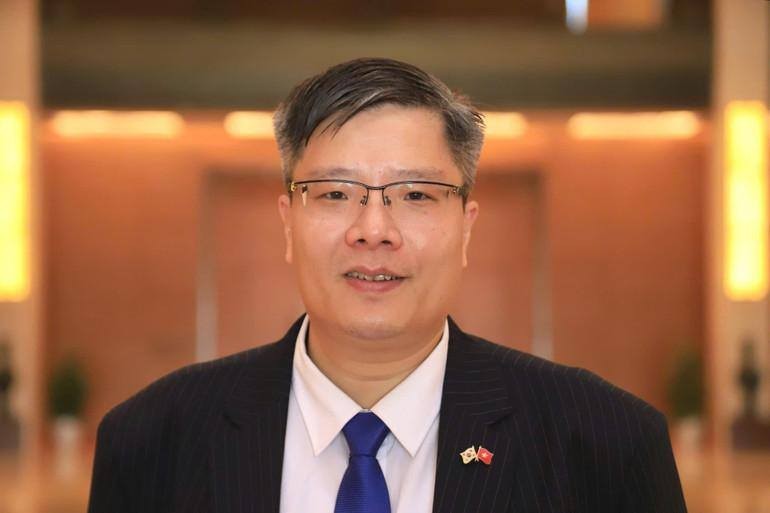 |
| Dr. Tran Hai Linh, Chairman of the Association of Vietnamese Businessmen and Investors in the Republic of Korea (VKBIA). |
From this perspective, he outlined several concrete steps:
Build a national roadmap for the Convention’s implementation, including a legal framework, technical guidelines, and inter-agency coordination standards. It is necessary to issue detailed instructions so that government bodies, local authorities, enterprises, and professional organizations clearly understand their responsibilities and cross-border coordination procedures when incidents occur.
Enhance the capacity of law enforcement agencies, courts, and prosecutors in addressing cybercrime through advanced training and joint practice programs with international partners. The development and funding of national and local Computer Emergency Response Teams (CERTs) should be prioritized, along with organizing annual inter-agency and international cybersecurity drills.
Refine relevant laws and regulations—such as those on personal data protection, cybersecurity, and electronic judicial cooperation—to ensure consistency with the Convention’s commitments while safeguarding human rights. Vietnam should also promote technical standards and secure information-sharing frameworks among stakeholders, based on confidentiality and legal compliance.
The public–private partnership (PPP) model should be encouraged, fostering collaboration between the state, technology firms, banks, and telecommunications companies to establish early-warning systems. Periodic forums among government, businesses, academia, and civil society should be organized to exchange information on emerging risks and coordinate response mechanisms.
Set up a specialized regional Cybersecurity Center of Excellence in Hanoi—or a Hanoi–Korea joint hub—focused on training, research, and technical cooperation in cybersecurity. This would serve as a flagship initiative of Vietnam’s digital diplomacy.
Broaden training programs and expert exchanges with advanced partners such as Korea, the EU, Japan, and the United States, while playing an active role within the ASEAN+ framework to share best practices and standards.
Provide technical and training support packages for small and medium-sized enterprises (SMEs)—a vulnerable yet essential part of supply chains. Prioritize the protection of critical infrastructure sectors such as healthcare, energy, and finance through joint risk assessment models and financial assistance for cybersecurity upgrades.
Develop indicators and evaluation frameworks to assess the Convention’s implementation progress, including metrics such as the number of international cooperation cases, response time, CERT capacity, and the percentage of resolved incidents. Regular public reports should be released to strengthen international confidence.
Continue the role as a bridge builder, fostering consensus while maintaining a balanced position that respects international law, human rights, and common interests. The Convention must be implemented substantively, not exploited for geopolitical purposes.
Leverage technical diplomacy by organizing international conferences and workshops, inviting experts and partners, and launching concrete cooperation initiatives to sustain its influence following the signing of the Convention.
“Vietnam needs to move swiftly from negotiation to substantive implementation—completing the legal framework, strengthening investigative and incident-response capacity, and promoting public–private and multilateral cooperation. The establishment of specialized centers, international training programs, and cross-border exercises will enable Vietnam not only to comply with but also to lead the Convention’s implementation. Through transparency and measurable progress indicators, Vietnam will maintain a proactive role, contributing to a safe and trustworthy cyberspace for the region and the world,” Dr. Tran Hai Linh stressed.
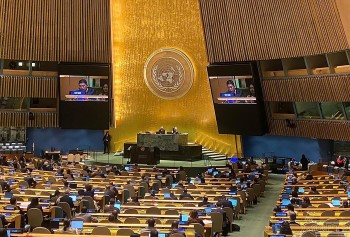 | Hanoi Convention: A Milestone in Multilateral Diplomacy On December 24, the United Nations General Assembly unanimously adopted the United Nations Convention on Cybercrime. As stipulated in Article 64, the document will be ... |
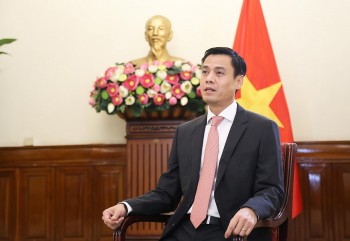 | Hanoi Convention Marks New Milestone in Vietnam’s Multilateral Diplomacy Deputy Foreign Minister Dang Hoang Giang shared with the press his thoughts on the upcoming Signing Ceremony of the United Nations Convention against Cybercrime, themed ... |
Recommended
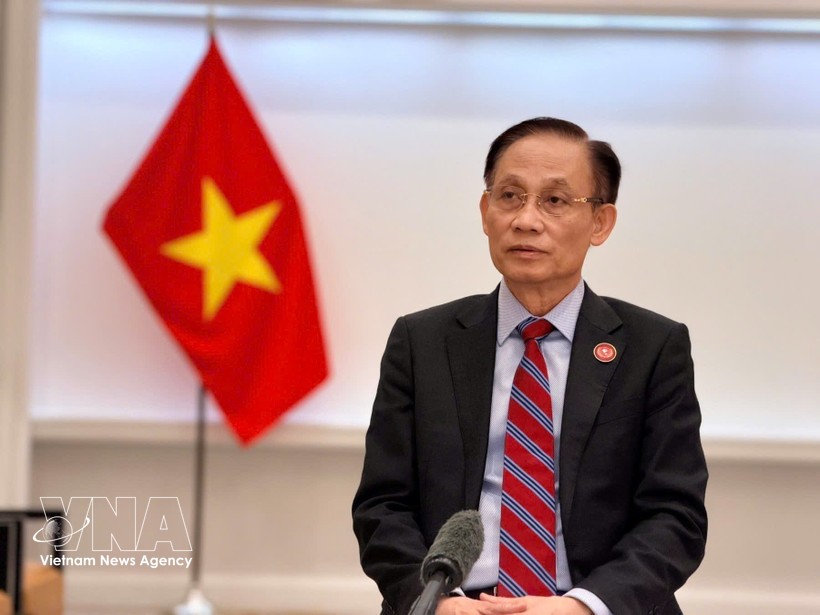 National
National
Party Chief’s US Trip Marks Milestone in High-level Multilateral Diplomacy: FM
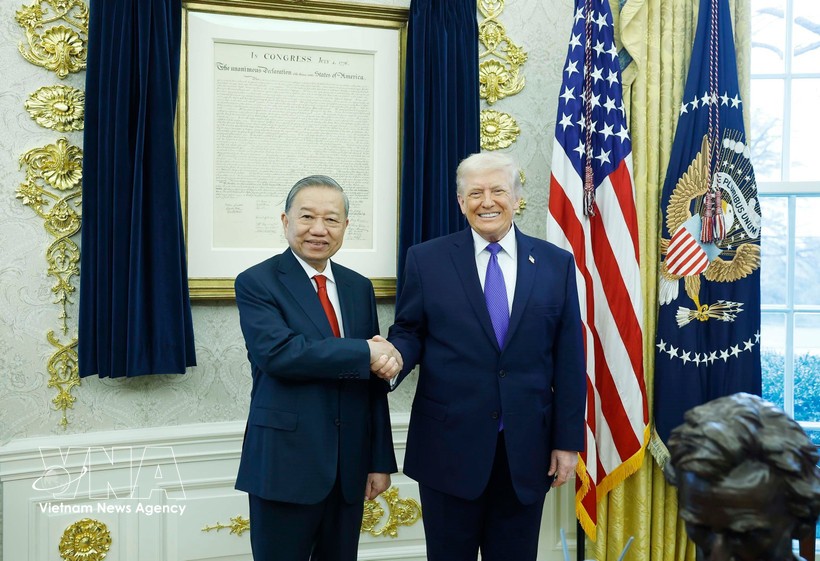 National
National
Party General Secretary To Lam Meets US President Donald Trump at White House
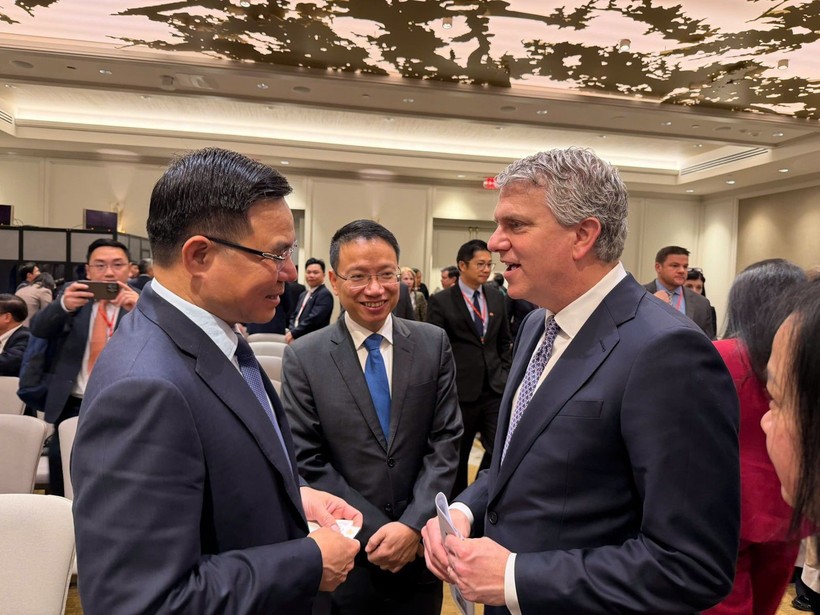 National
National
Vietnam News Today (Feb. 21): Vietnam, US Step Up Dialogue to Facilitate Trade Ties
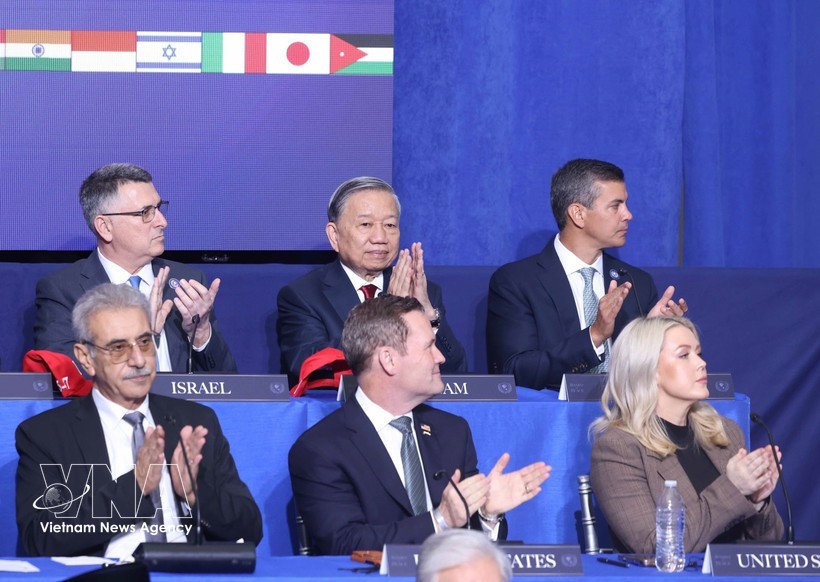 National
National
Party General Secretary To Lam Attends Inaugural Meeting of Gaza Board of Peace in US
Popular article
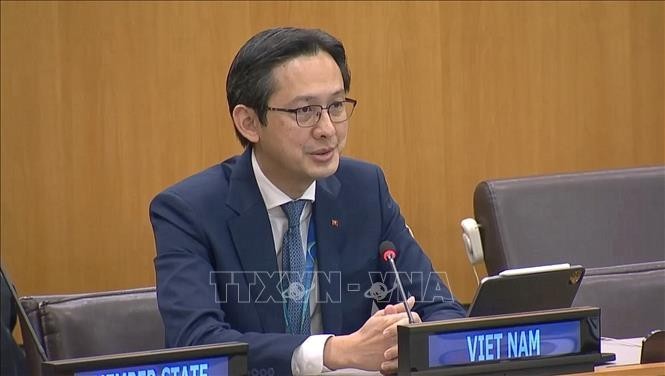 National
National
Vietnam Promotes Multilateral Dialogue on Nuclear Non-proliferation Ahead of the 2026 NPT Review Conference
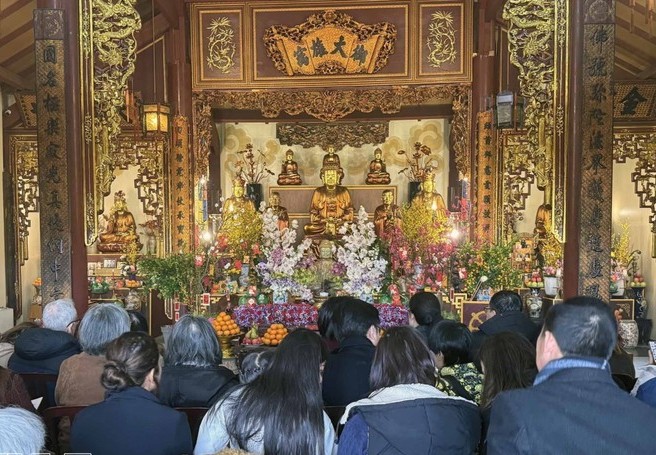 National
National
Vietnam News Today (Feb. 19): Vietnamese in France Cherish Traditional Practices During Tet
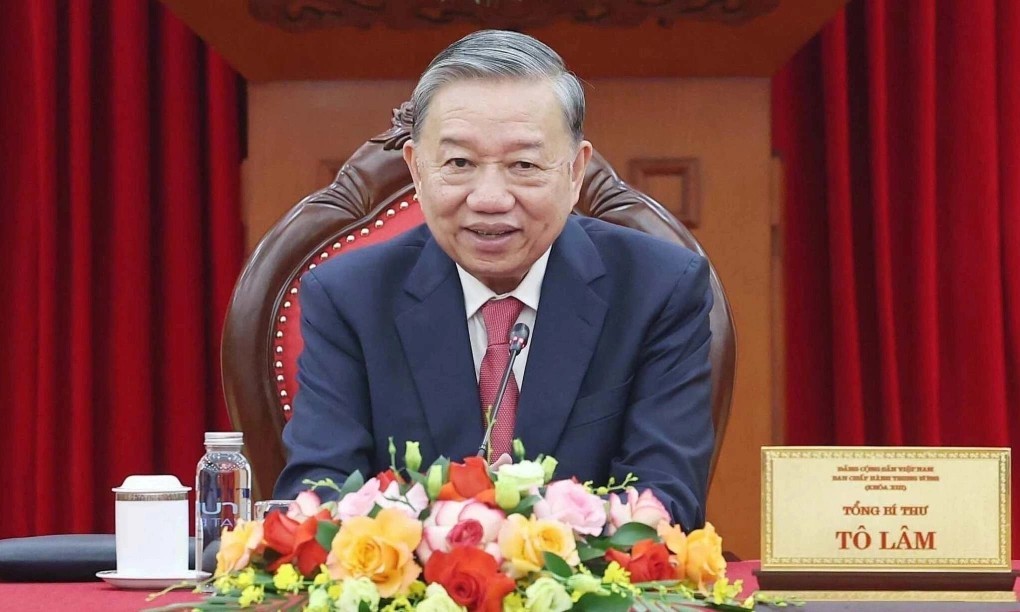 National
National
General Secretary To Lam to Attend Inaugural Meeting of the Gaza Peace Council in the United States
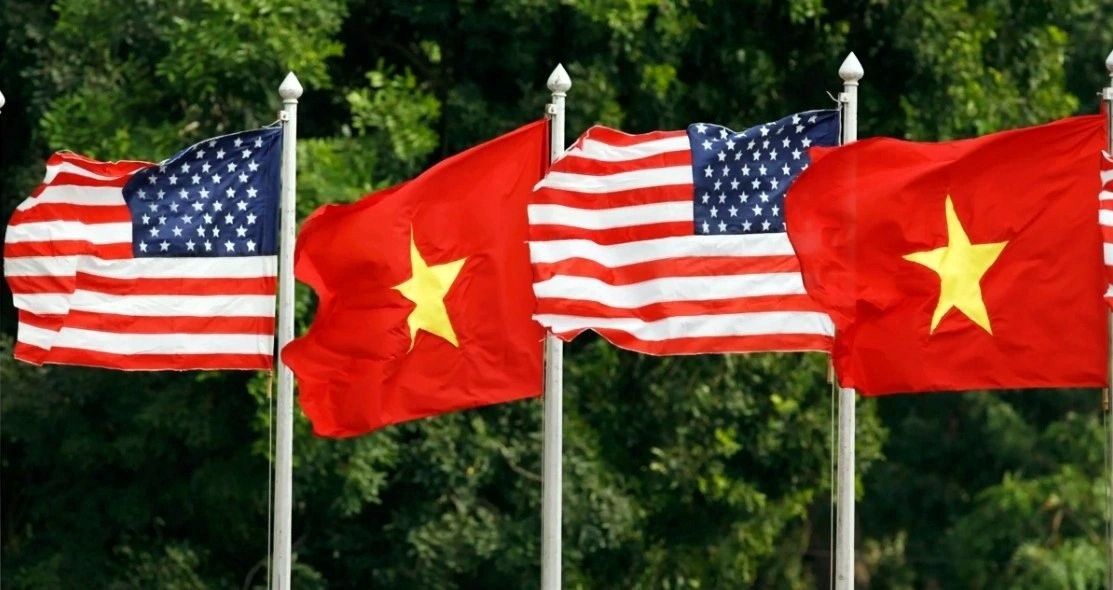 National
National




